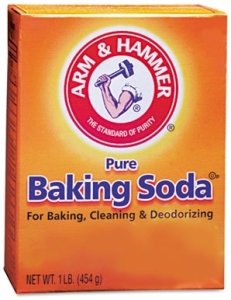Let’s Bake Cookies!
In the course of our lives, many of us deal with broken relationships. If you are someone who chose to end a relationship, I’m speaking to you primarily. You probably did what you did because you were hurt deeply, in a way that made you feel you could not continue to remain with the other individual without negative ramifications.
It may have been that you didn’t trust yourself to stay strong in that relationship. Or you couldn’t trust the other person not to harm or deceive you in some way. Perhaps you couldn’t find a happy, centered place around the other individual.
You may have spent a great deal of time evaluating, soul-searching and reflecting to determine whether to end the relationship. You may have pursued a long season of self-improvement, hoping to correct whatever was “off” in you that contributed to a poor dynamic. Eventually, you came to understand you can only change yourself. You have no control over another person.
 I believe that relationships are like chemical compounds. Let’s say one person is baking soda and the other is vinegar. Separately, they each serve a wonderful purpose. Baking soda is important in cookies, cakes, and other baked items. Vinegar is quite delicious in slaw, salad dressings, and pickles.
I believe that relationships are like chemical compounds. Let’s say one person is baking soda and the other is vinegar. Separately, they each serve a wonderful purpose. Baking soda is important in cookies, cakes, and other baked items. Vinegar is quite delicious in slaw, salad dressings, and pickles.
Separately, there is nothing inherently “wrong” with either of them. They are just different. They are opposites (acid and base). Bring them together, and they form a relationship that becomes volatile and unstable.
For baking soda to blame vinegar for the explosion would be ridiculous. For vinegar to blame soda would be equally senseless. Both contributed to the dynamic. Baking soda might say, “Vinegar is sour and stinky. So it’s more vinegar’s fault.”
 In fact, one person’s actions could be quite reprehensible and more socially offensive than the other party’s. But the fact remains that the relationship is a compound, and both ingredients play a role in the volatility and instability.
In fact, one person’s actions could be quite reprehensible and more socially offensive than the other party’s. But the fact remains that the relationship is a compound, and both ingredients play a role in the volatility and instability.
When you say, “I do not choose to pursue this chemistry experiment any further,” you are not a villain, nor are you necessarily unforgiving. One can completely forgive and still choose not to play a role in a volatile chemical reaction.
But beware, as you begin to forgive, forget, and move on with your life, if something or someone causes you to question your decision to end the relationship, you may feel drawn to dig up the past. You may feel the need to villain-ize the other person to justify your choice — especially if you chose to end a relationship where promises and covenants were made.
If you are prone to hyper-responsibility, you cannot help but see your role in the other person’s behavior. You know you contributed to the dynamic, if only in an enabling way. If guilt creeps in over the decision, or doubt that you did the “ultimate right thing” that the “ultimately forgiving, perfect person” would have done, you will feel compelled to rehash the relationship. You’ll scour through time, looking for justification for your choice.
The problem with scouring through time is that if you are a person of integrity, you see not only the other person’s “crimes,” but also you see your own. The more time that passes and the more analysis that takes place, the more you see there is no “winning side.”
Bitterness, irritation and self-doubt are inevitable by-products of this analysis exercise.
So, what is the solution?
Forgiveness … complete and utter forgiveness of the other person. If you accept that the other person did his best in the relationship, given his personality, upbringing, childhood patterns, beliefs, experiences, fears and propensities, something unusual happens. You must accept that YOU did the same. The need to scour through time looking for fault lines is no longer necessary.
You no longer must hunt for justification for having ended the relationship. You can forgive yourself for that too. Right or wrong, you chose it. You did what you felt was best for your own emotional, mental (or in some instances physical) survival.
The truth is the chemical reaction was not healthy. Sure, it may be cool and exciting to see baking soda and vinegar unite to form a flamboyant eruption. But nobody keeps putting baking soda and vinegar together long term. It isn’t productive.
 There’s nothing wrong in choosing not to keep replaying the experiment. There is no need to keep blaming one component or the other. It was what it was. Now you move on. You’re free to let the past go, let the other person go. Send them love and light and wish them the best, because just as you hope to find a new relationship that is sweeter and more productive, so do they.
There’s nothing wrong in choosing not to keep replaying the experiment. There is no need to keep blaming one component or the other. It was what it was. Now you move on. You’re free to let the past go, let the other person go. Send them love and light and wish them the best, because just as you hope to find a new relationship that is sweeter and more productive, so do they.
By forgiving them and forgiving YOURSELF, you are FREE … truly FREE. In your next relationship, you can choose to bake cookies! 🙂
About Marnie Pehrson Kuhns
Marnie Pehrson Kuhns is a Certified SimplyAlign Practitioner™ who uses music and creativity to mentor you past barriers, fears and doubts to discover, create, align with, and deliver your soul’s song (the mission, message or purpose you are on this earth to live). Marnie is a best-selling author with 31 fiction and nonfiction titles. If you'd like Marnie and her husband Dave to work with you personally on Your Great Reinvention, get a FREE 20-minute strategy session with Marnie here.
- More Posts(413)

